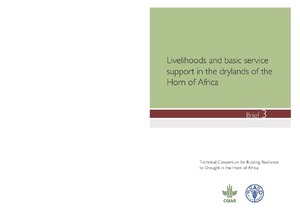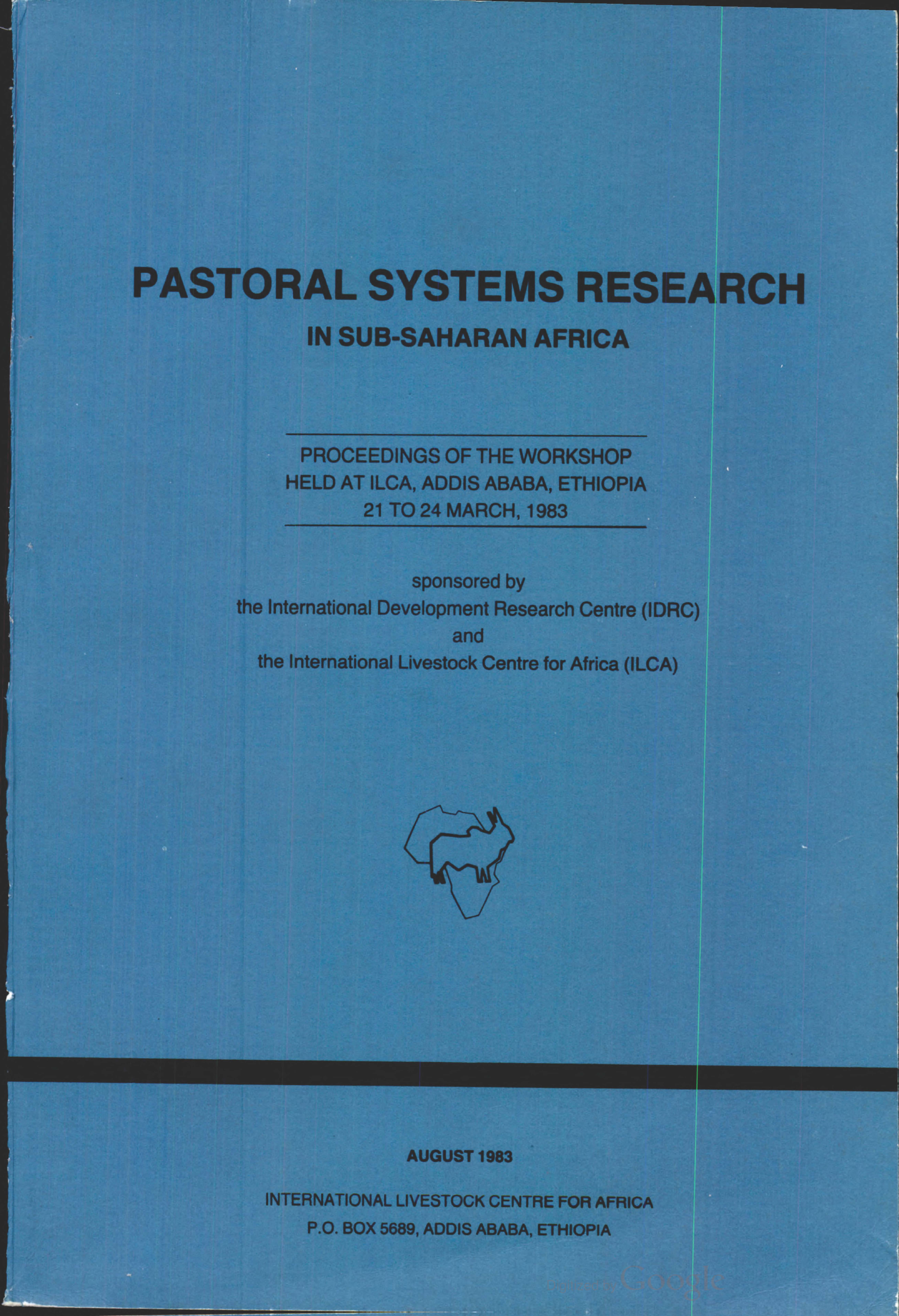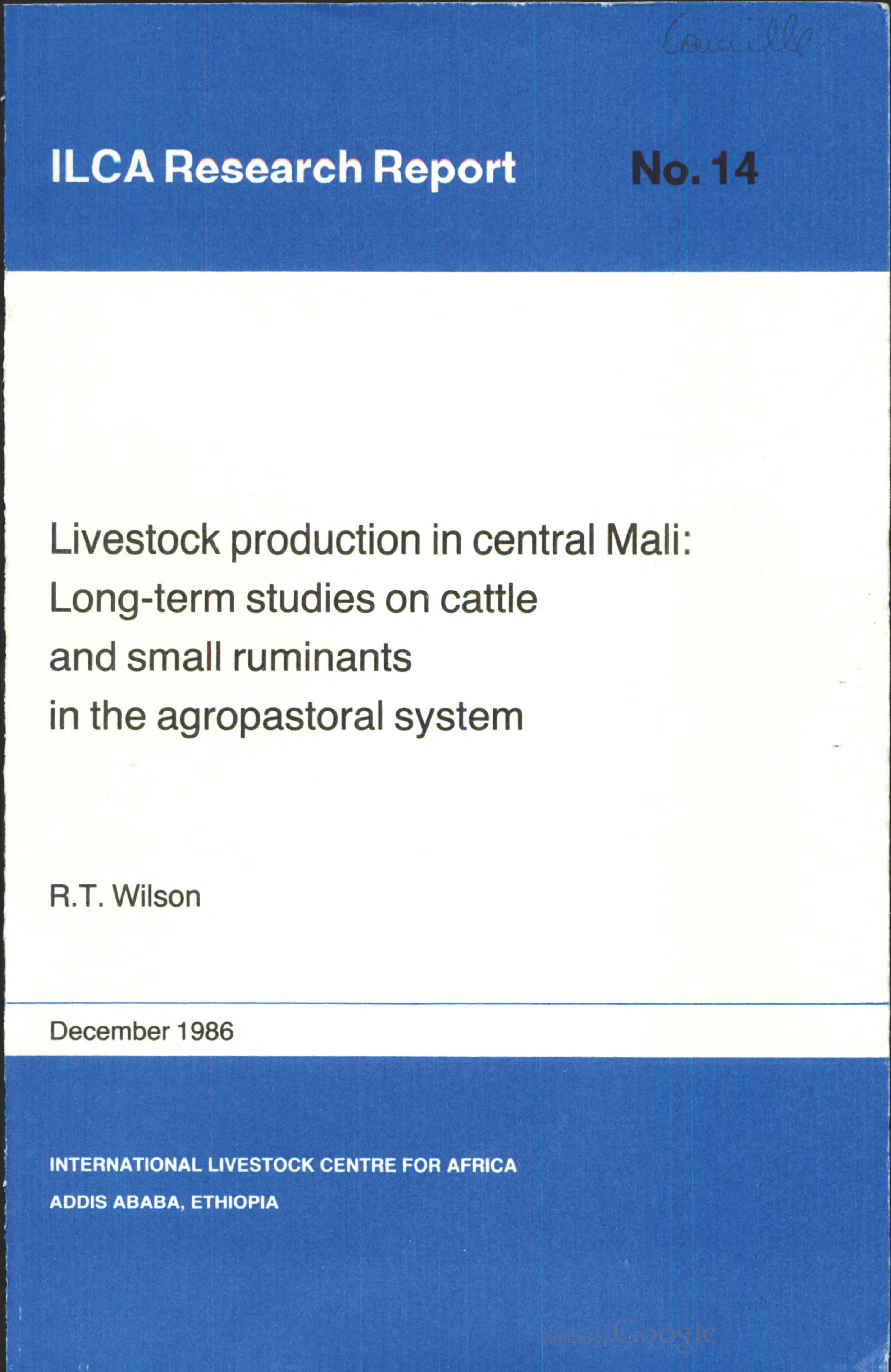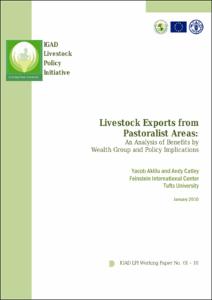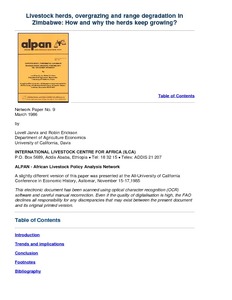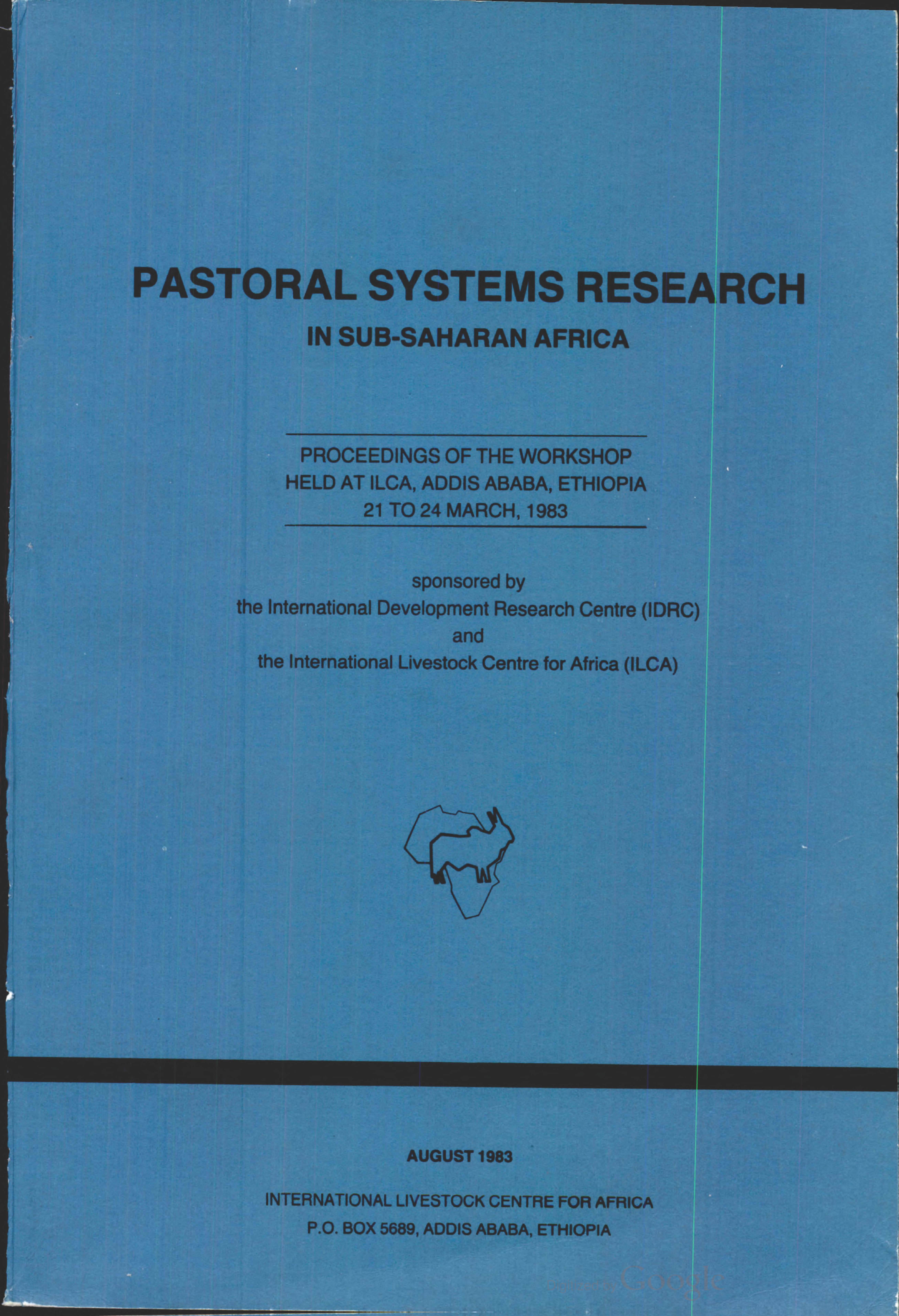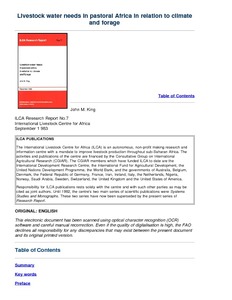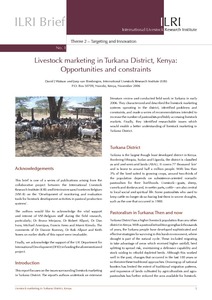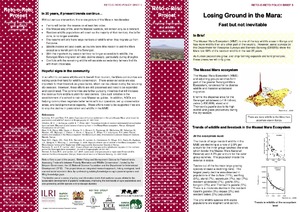Low altitude aerial surveys in pastoral systems research
Discusses how low level aerial survey can be used to diagnose constraints within pastoral systems and the relative cost effectiveness of such operations, with particular reference to flight & sample procedures and information collection and analysis; presents some results from low-altitutde aerial survey undertaken by ILCA in Nigeria, Mali, Niger and Ethiopia.
Livestock production in central Mali: Long-term studies on cattle and small ruminants in the agropastoral system
Presents results of a 6 year study on the livestock production systems, management practices herd & flock demography in an agropastoral system in central Mali as well as reproductive performance growth rate, weights, mortality, offtake and productivity in terms of meat & milk yield of cattle & small ruminants; includes recommendations on means of improving the system and future research.
L'utilisation des enquetes integrees pour le recensement des ressources et le suivi de l'evolution des systemes pastoraux en Afrique au sud du Sahara
Reviews various approaches and techniques used in a number of sub-Saharan African countries to collect and analyze data on large-scale ecological changes with particular reference to remote sensing and monitoring techniques in resource inventory; suggests ways to build more effective data bases.
Livestock productivity and management
Discusses ways of collecting livestock data, mentioning the usefulness and techniques of low-level aerial surveys to gather information on animal numbers; and methods of recording weight changes and milk yields.
Livestock herds, overgrazing and range degradation in Zimbabwe: How and why do the herds keep growing?
This paper looks at African livestock herds in Zimbabwe over the period 1890-1980. The focus is on the livestock system in the tribal areas where, under communal land use, there has been long-term concern with environmental deterioration Zimbabwe was chosen because it is one of the few African countries for which reasonably accurate historical data are available regarding African (common range) as opposed to Europen (closed range) herd development.
Livestock transactions data collection
Discusses the need for data on voluntary offtake & acquisition of livestock in pastoral production systems, and considers methods through which desired data can be collected, particularly multiple-visit, and single-visit progeny history technique.
Livestock water needs in pastoral Africa in relation to climate and forage
Discusses livestock water needs and the variation of water dependence in dif. circumstance, mentioning body water functions; physiological aspects of water balance; channels of gain & loss; and factors affecting water balance, particularly energy production, thermoregulation and water availability. Examines energy and water use, as well as water & livestock development in pastoral areas of Africa.
Livestock marketing in Turkana District, Kenya: opportunities and constraints
This report focuses on the issues surrounding livestock marketing in Turkana District. The report 's authors undertook an extensive literature review and conducted field work in Turkana in early 2006. They characterized and described the livestock marketing systems operating in the district, identified problems and constraints, and made a series of recommendations intended to increase the number of pastoralists profitably accessing livestock markets. Finally, they identified researchable issues which would enable a better understanding of livestock marketing in Turkana District.
Losing ground in the Mara: fast but not inevitable
The Maasai Mara Ecosystem (MME) is one of the key wildlife areas in Kenya and has more wildlife than any other part of the country. However, aerial surveys by the Department for Resource Surveys and Remote Sensing (DRSRS) show that Mara lost 60% of it’s resident wildlife in the last 25 years. As human populations grow, and crop farming expands and land privatizes, these pressures will only grow.

